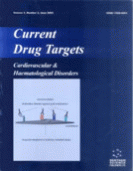Abstract
Acyl-coenzyme A: cholesterol acyltransferase (ACAT) is an intracellular enzyme that catalyzes the formation of cholesterol esters from cholesterol and fatty acyl-coenzyme A. Animal experiments showed that ACAT inhibitors reduce plasma cholesterol levels by suppressing absorption of dietary cholesterol and by suppressing the assembly and secretion of apolipoprotein B-containing lipoproteins such as very low density lipoprotein in liver and chylomicron in intestine. Moreover, ACAT inhibitors were shown to prevent formation of macrophage-derived foam cells in the arterial walls. However, a recent double-blind, placebo-controlled, randomized trial of a potent ACAT inhibitor, avasimibe, failed to show significant beneficial effects on coronary atherosclerosis assessed by intravascular ultrasound. For clinical application of ACAT inhibitors, development of more potent compounds and improvements of the methods to evaluate their clinical efficacy are strongly needed.
Keywords: macrophages, interferon, Alzheimer's disease, avasimibe, amyloid plaques
 8
8













